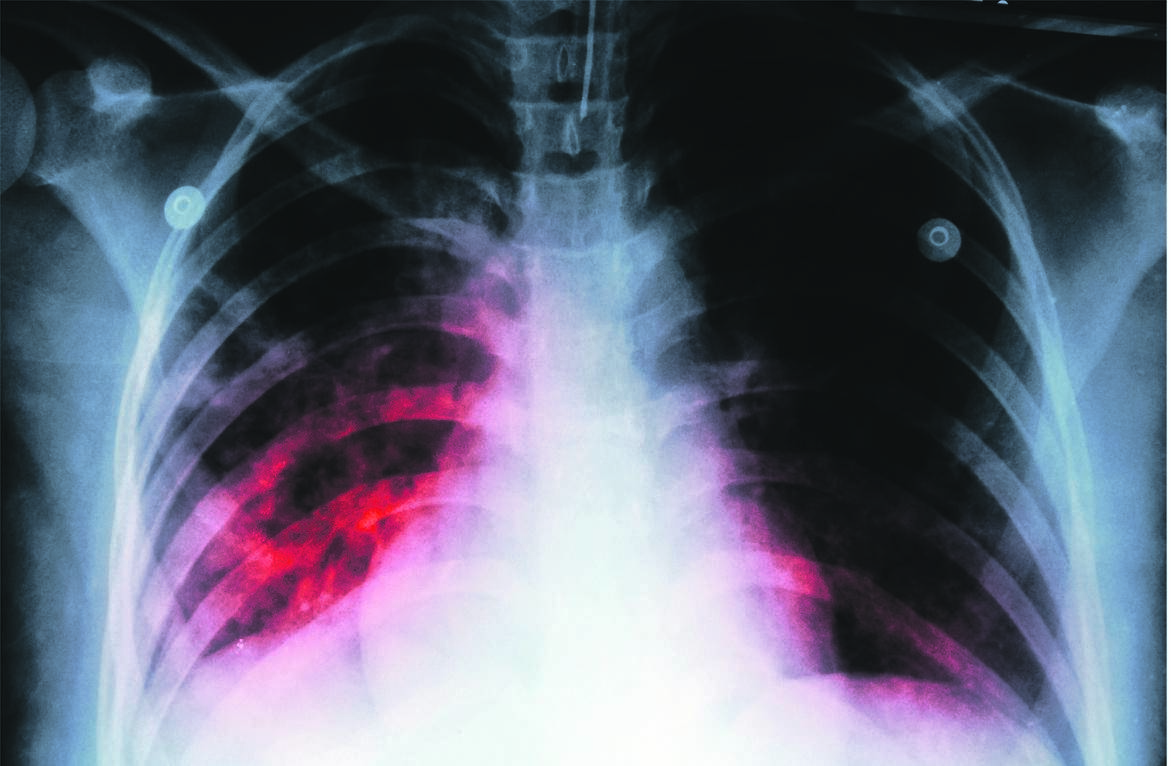
Tuberculosis (TB) is believed to make people more vulnerable to the Covid-19 coronavirus.
This poses a particular problem in South Africa, which has one of the 10 highest TB burdens in the world and has a relatively weak healthcare system.
Ahead of World TB Day, on March 24, the International Union Against Tuberculosis and Lung Disease (The Union) said in a statement that it “recognises that people living with TB are likely to be more vulnerable to Covid-19 and its effects, and reiterates that it’s essential to ensure that access to TB prevention, diagnosis and treatment continue in what is an unsettling environment”.
A higher vulnerability to Covid-19 is not only true for people living with TB, but also for those who have previously battled the disease.
Many TB survivors “have some form of lung damage”.
The risk is further heightened in South Africa, where at least 60% of TB patients also have HIV, which suppresses one’s immune system, leaving one vulnerable to becoming sick with Covid-19, according to the World Health Organisation (WHO).
It is particularly important that people living with HIV take antiretroviral treatment at this time, since people who are not on treatment are much more likely to have compromised immune systems.
Massive global toll
TB, the largest infectious disease killer in the world, kills about 1.5 million people around the globe each year, with approximately 10 million people becoming ill with the disease annually.
In South Africa, just more than 300 000 people become ill with TB each year and more than 63 000 die from the disease, according to the WHO’s latest global TB report.
“We know what works to fight Covid-19 from our experience and the tools we have developed to end TB – infection control, wide-spread testing, contact tracing, X-rays, artificial intelligence, telemedicine and psycho-social support. Today, prevention of any disease requires, in the first instance, political will. Prevention remains the biggest tool we have to address Covid-19,” said José Luis Castro, executive director of The Union.
Difficult to self-isolate
According to The Union, many TB survivors and current patients “come from impoverished communities and cannot financially afford to self-isolate”.
This is because “many patients live in small and crowded apartments or houses, often with extended families” and therefore “physical distancing is hard, if not impossible, to enforce”.
Scientific director for The Union, Dr Paula Fujiwara, told online health journalism publication Spotlight that this is especially true for patients in South Africa.
On Monday, President Cyril Ramaphosa announced a national lockdown for 21 days, beginning on Thursday, March 26.
“The challenge in South Africa is that it is ahead of all other African countries in terms of the Covid-19 outbreak. The outbreak started earlier and, although the numbers look small now, they are probably going to go up exponentially,” said Fujiwara.
“The challenge in places such as South Africa is that many people don’t have the capacity for social distancing. What the president did was the right thing to do. Without proper treatment for Covid-19, or a vaccine [which will take a minimum of a year to develop], these extreme measures that have been put in place are essential.”
Castro said that years “of underinvestment in supporting healthcare systems in TB response made the disease and its drug resistant forms the biggest infectious disease killer, with more than 4 000 deaths per day. We can’t afford to repeat these mistakes and be unprepared for pandemics like Covid-19”.
“It is important to put vulnerable people first in the fight against Covid-19,” said Claire Forlani, film and television actor, and ambassador for The Union.
“We have learnt from many TB survivors who have gone through the isolation, fear, discrimination and stigma that we are facing with Covid-19. Let’s not repeat this; let’s learn from it. We all need each other. Now is the time for collaboration and sharing any practical lessons from fighting TB that we can.”
- This article was produced by Spotlight




 Publications
Publications
 Partners
Partners









